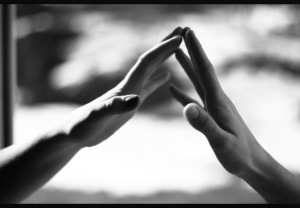I started writing this piece just one week ago, when the news broke all over social media that there had been another college campus shooting at Umpqua Community College in Oregon. I was heart-sick and overwhelmed, unable to articulate my feelings and ideas into coherence. I jotted down what I could, determined to come back to this piece later, when everything had calmed down some.

This morning I woke up to two news banners on my iPhone: One dead in campus shooting in Arizona. Developing: Texas University on lock-down after shots fired.
Again. It’s happened again.
I guess I’m just not like the numbed masses of American citizens who see these headlines and shrug: Oh, well, another one of those darn shootings. I care. I care about the people who have been robbed of their lives, I care about their families and friends who will now have to suffer unmentionable grief, and I care about the precedent that our society is establishing for future generations.
Future generations like my daughter.
My daughter is going to grow up in a world where one mass shooting can or will occur every week, and our politicians will say things like, “Crises happen.” She’s going to grow up to believe that this is how people are — cruel, jaded, and dangerous. I’m going to kiss her every morning and send her off to school, knowing that there is a possibility, however slim, that I will never see her again.
Some might say, “Well, that could be true in any case. Even in a perfect world, accidents happen.”
BUT THESE MASSACRES ARE NOT ACCIDENTS.
These are not accidents. And if we allow this to continue, then we are all responsible.
We need to start having the uncomfortable conversations that we have been avoiding en masse:
This epidemic — and that is the word we need to start using, because this is absolutely a national health crisis — isn’t just about mental illness. It isn’t just about lackadaisical weapons laws. It isn’t just about a society that has become numb to violence. It really isn’t about any of the things that mass media has been telling you it’s about.
It is high time we as a society come to grips with the fact that it is anger that causes violence, not mental illness, not guns, not exposure to video games and gratuitous violence. Other scapegoats need not apply. Let’s just look at some facts:
This profile is familiar because we’ve seen it before. The two killers of 13 people at Columbine High School in 1999? Eighteen and 17-years-old. Male. The murderer of 20 children and six adults in Sandy Hook Elementary School in 2012? Twenty years-old. Male. The shooter who killed six people in near the University of California, Santa Barbara campus in 2014? Twenty-two years old. Male. The perpetrators of the Charleston, South Carolina church shooting in June 2015, the Aurora, Colorado shooting in 2012 and the Tuscon, Arizona shooting in 2011? All men under the age of 30. The list goes on.
The perpetrators of these crimes are not disenfranchised minorities like the population of American sufferers of mental illness. These shooters are in fact at the highest run of the social privilege ladder — white, cisgender males in the prime of their youth. Perhaps they do suffer from a mental illness, but so do tens of thousands of other Americans, people who are more likely to kill themselves than ever harm another human being. So what exactly causes a a group of men to completely rupture and evacuate their humanity? As mentioned by Cliff Leek in the above quoted article: these individuals, who were born into a society that granted them untold privilege based on their race and gender, are rapidly being taken down a peg by an increasing shift to a more egalitarian society. Simply put, these men seem to have just lost it once having to confront demands that they check their own privilege. Is it so surprising that after raising generation after generation of boys to believe that their manhood is tenuous and revocable based on how much or how little they assert themselves, that some young men have started to crack under that strain?
It’s time that we stopped pretending that toxic masculinity isn’t a thing, and start doing better by our men and our boys. They deserve better. We all do.
Toxic masculinity. It sounds like such a made-up buzz word. But it really is a thing, and a driving force behind this epidemic that we are all struggling to understand. We teach our boys, either directly or indirectly, that they have the right to power and status, and that power and status basically boils down to how many women they fuck, how much stuff they have, and how much ass they can kick. Then we teach them that if they don’t prescribe to this particular formula for success, they are wimps, pussies, or nancy-boys. Not only is our definition of masculinity so narrow as to exclude all but the most lumber-jacking of fellows, but it also excludes any conceits to compassion, emotion, or altruism. We’re raising our boys to be fucking sociopaths and whipping them when they break. If I were a dude, I’d be pissed as hell.
These shooters were pissed as hell. But for all the wrong reasons and at all the wrong people.
They were broken people, and we broke them. Not because girls refused to date them, or because they didn’t get the respect they deserved, but because we set them up to fail by teaching them that they had a right to take what they wanted with no recompense. We taught them that they must lash out, or else be forever condemned to sadness and isolation. Perhaps we have no right to be surprised, then, that these men sought to take their power back by force. That is precisely what we told them they must do.
Not acceptable.







